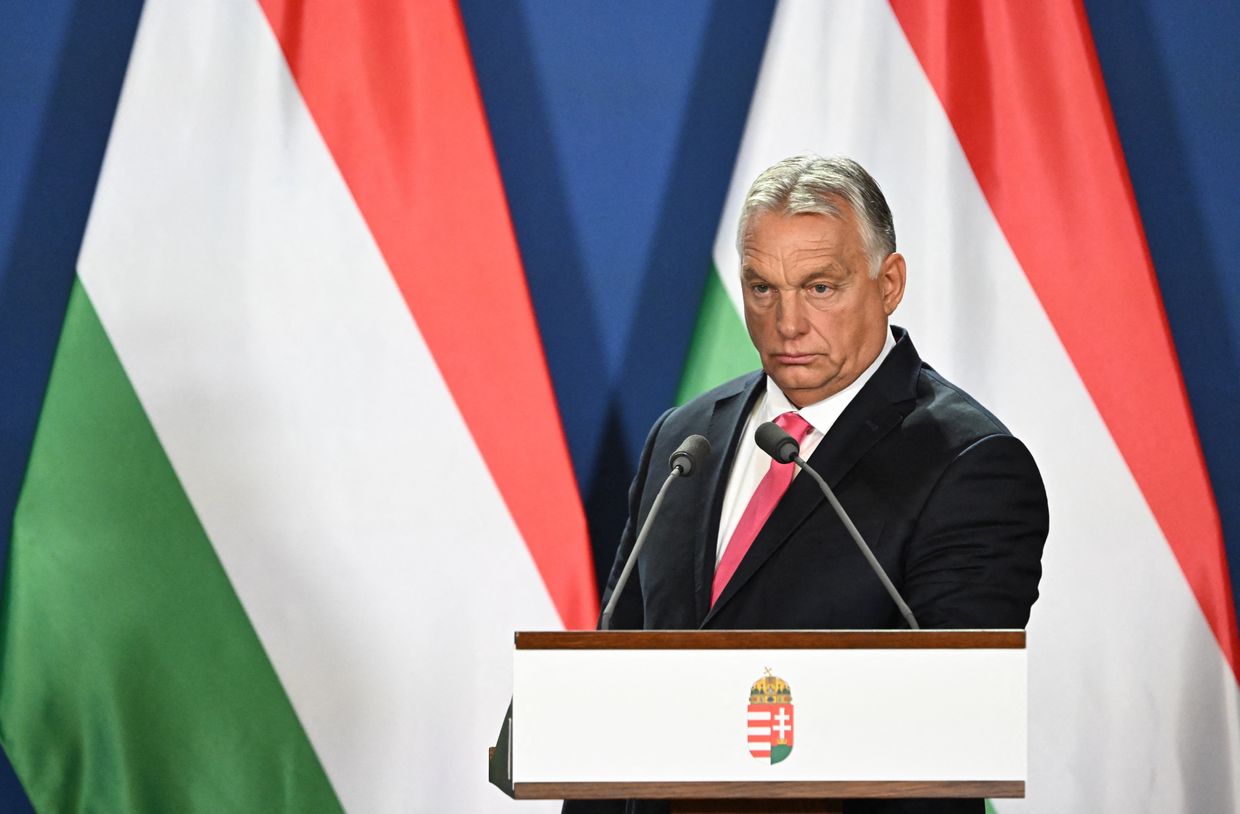Hungarian opposition politician speaks up in support for Ukrainian commander banned by Budapest over oil pipeline attack

Hungarian opposition politician Marton Tompos has donated money to the Ukrainian army in support of the ethnic Hungarian commander responsible for the latest attack on the Druzhba oil pipeline.
In recent weeks, Ukraine carried out at least three attacks on the Druzhba oil pipeline, which delivers Russian oil to Hungary and Slovakia, temporarily disrupting operations.
After the attacks, Budapest banned Robert Brovdi, commander of the Armed Forces' Unmanned Systems Forces (USF), from entering Hungary, the country's foreign minister Peter Szijjarto said on Aug. 28.
Brovdi, who is of Hungarian descent and known by the call sign "Magyar," has confirmed that his branch was responsible for the drone strikes against Druzhba, including an Aug. 21 strike which targeted the Unecha pumping station in Bryansk Oblast.
Tompos, a representative of the Hungarian opposition party Momentum, sent 414 euros in donations to the unit Brovdi founded, the 414th Strike UAV Brigade "Magyar's Birds." In his Aug. 29 Facebook post, the lawmaker called on other Hungarians to do the same.
"The government is not the same as the country. Therefore, I ask you to join me in proving (...) that it is not Ukrainians, but the Hungarian government that poses a threat to Hungary's energy security; and that we understand why Robert Brovdi is a hero in Ukraine," Tompos wrote on a Facebook post on Aug. 28.
"Ukraine has targeted Russian revenues and wants to make the Russian population better understand and feel what Putin's war economy means. (...) However, there is also a Hungarian side to this: Orban's government has done almost nothing in the last 15 years to wean itself off Russian oil," he said.

The Hungarian foreign minister described the strike as "an attack on Hungary’s sovereignty," saying it "endangered our energy security and nearly (forced) the use of our strategic reserves."
"Ukraine knows very well that the Druzhba pipeline is vital for Hungary’s and Slovakia’s energy supply, and that such strikes harm us far more than Russia," Szijjarto said on X.
Brovdi dismissed Budapest's decision, saying the Hungarian leadership shares responsibility for Russian attacks on Ukrainian cities by "filling their own dirty pockets with sanctioned cheap raw materials."
"I am Ukrainian, and I will arrive in my father’s homeland after you," the commander said on his Telegram channel. "There are enough true Hungarians in Hungary, and one day, they will be sick to death of you."
In his statement, Szijjarto made no mention of the Russian overnight mass drone and missile attack on Kyiv on Aug. 28, which killed at least 25 people, including four children, and injured 63 others.
Ukraine's Foreign Minister Andrii Sybiha said that Budapest "is on the wrong side of history."
"Peter, if the Russian pipeline is more important to you than the Ukrainian children killed by Russia this morning, this is moral decay," he wrote on X.
"If Hungary has indeed closed entry into Hungary and the entire Schengen zone to one of Ukraine’s military commanders, who is an ethnic Hungarian and a citizen of Ukraine, this can only cause outrage," President Volodymyr Zelensky said, adding that the Foreign Ministry has been instructed to clarify the issue and "respond accordingly."
Kyiv summoned Hungarian Ambassador Antal Heizer later on Aug. 28 to protest against the "Hungarian authorities' discriminatory steps against a Ukrainian citizen of Hungarian origin."
The protest note suggested the move contradicts Budapest's regular public appeals about respecting the rights of the Hungarian ethnic minority in Ukraine. The Hungarian government has repeatedly accused Ukraine of discriminating against its Hungarian minority through its language laws, a claim Kyiv rejects.
The Druzhba pipeline, one of the world's largest, carries Russian oil directly to Hungary and Slovakia — the only EU countries still buying Russian crude through the system. In July, they imported $232 million and $196 million worth of oil, respectively.
Hungary, widely seen as the most Russia-friendly government in the EU, has repeatedly opposed Brussels' attempts to fully halt Russian energy imports and threatened to block Ukraine's path to EU membership.
Kyiv regularly carries out attacks on military and industrial facilities in Russia, including targeting Russian oil infrastructure to undermine Moscow's revenue streams and weaken its ability to wage war in Ukraine.











